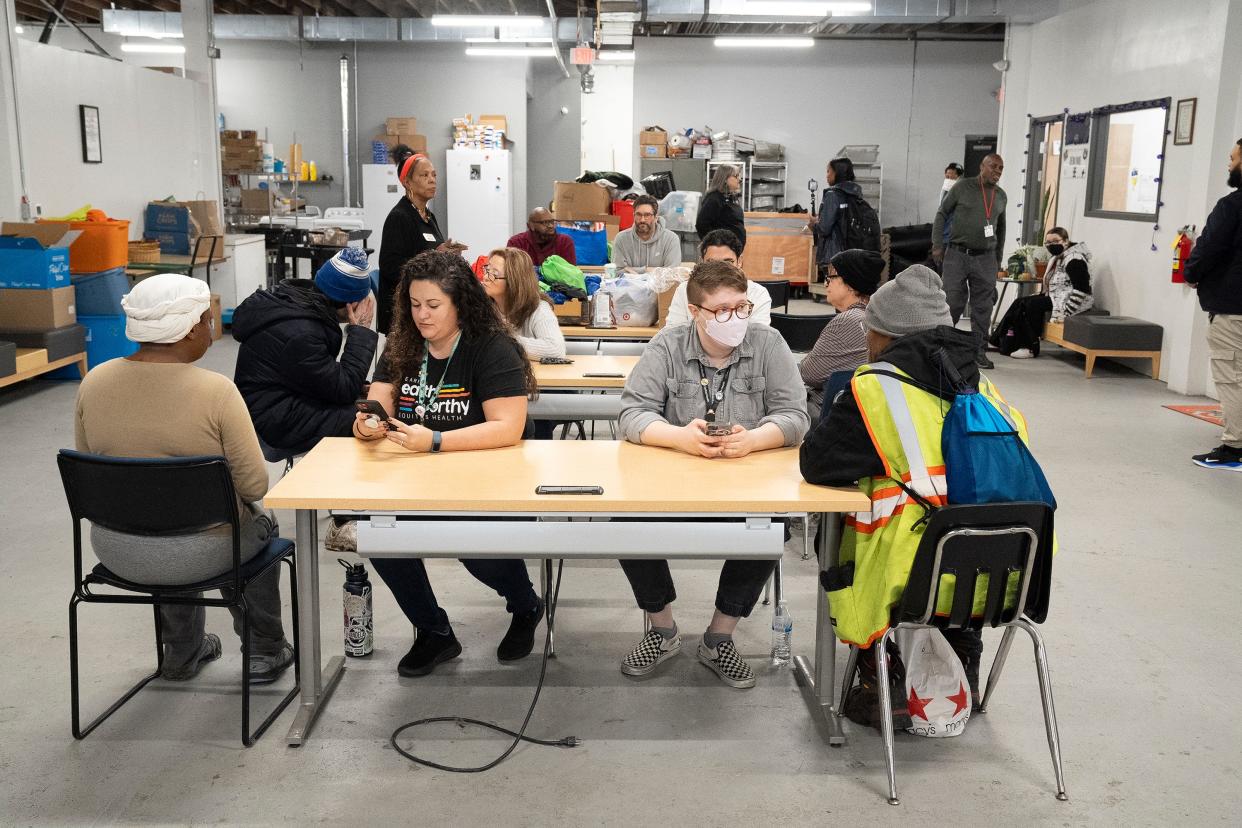Columbus City Council uses federal COVID funds to help provide $15M for homeless shelters

Columbus City Council has approved two funding agreements totaling almost $15 million for the Community Shelter Board, which coordinates the efforts of 16 agencies to fight homelessness in Franklin County.
About two-thirds of the money approved at Monday's meeting will come from the city's unspent federal American Rescue Plan Act funds supplied for emergency COVID relief, while the remainder will be from city general fund dollars.
Almost $9.47 million in federal dollars will be granted to the Shelter Board to provide operating support for its emergency shelter program and to pay for expenses retroactive to Jan. 1, 2024.
The historic grant means that city funding toward homelessness will nearly triple from previous years, said Councilmember Shayla Favor, who chairs the legislative body's Housing, Homelessness, and Building committee.
The number of people seeking shelter assistance is at an all-time high in Columbus, Favor said, and is expected to increase by another 86% by 2028.
Included in that spending will be raising the minimum wage for frontline engagement and case management staff who work in shelters to $21 an hour. Favor didn't say in a prepared statement, and City Council staff couldn't provide Monday evening, how large of a pay raise that new base figure of $43,680 a year for a full-time shelter worker represented.
"All the shelters have varying levels of pay," said Jose Rodriguez, spokesperson for the City Council. It was unclear if any already have that base salary.
Those workers, in addition to providing secure, clean shelters, also provide meals, rehousing services, physical and behavioral health care, material assistance, referrals, and employment services in shelters that run nonstop, 24 hours a day.
"Children staying at the family shelters are supervised in an age-appropriate environment where they participate in developmental activities, receive homework help, child care, and health services," the ordinance said. Organizations that are to get funding are Lutheran Social Services-Faith Mission; Maryhaven Engagement Center; Friends of the Homeless, a program of Southeast, Inc.; YWCA Family Center; and the YMCA Van Buren Center.
"This is significant (federal) ARPA dollars going toward housing, and I just wanted to make that point," said city Development Director Michael Stevens.
The Dispatch reported in May 2023 that central Ohio was suddenly swimming in a flood of COVID relief dollars. On top of an extra $68 million in rental assistance from a Biden administration reallocation of remaining unspent dollars, Columbus also was sitting on $70.5 million in unspent American Rescue Plan Act COVID relief money and $16.4 million in federal Housing and Urban Development money distributed for COVID assistance programs such as affordable housing.
In all, Columbus had to spend a total of $152 million in federal COVID relief funds, with varying deadlines over the next few years — or risk losing it.
In other business Monday, the City Council:
Approved extending a contract for one year with Rumpke of Ohio, Inc., for another $17.7 million to collect yard waste and recyclables in 2024. The original 2017 contract was for five years, beginning at a price of $8.5 million per year, but recycling collections doubled from every two weeks to every week last year.
Approved $16.8 million to pay Solid Waste Authority of Central Ohio "tipping fees" to dump an estimated waste stream of 335,000 tons trash at SWACO's landfill facility in 2024.
Authorized the city’s Department of Public Utilities to spend up to $60,000 to purchase land needed to complete a "restoration project" in Walhalla Ravine in Clintonville. The land is collectively on a series of lots adjacent to Walhalla Road between East Longview Avenue and Clinton Heights Boulevard. The city "intends to stabilize the banks of the Walhalla Ravine and reduce bank erosion and suspended sediment load," the ordinance said.
@ReporterBush
wbush@gannett.com
This article originally appeared on The Columbus Dispatch: Columbus triples cash for homeless services using federal COVID cash

